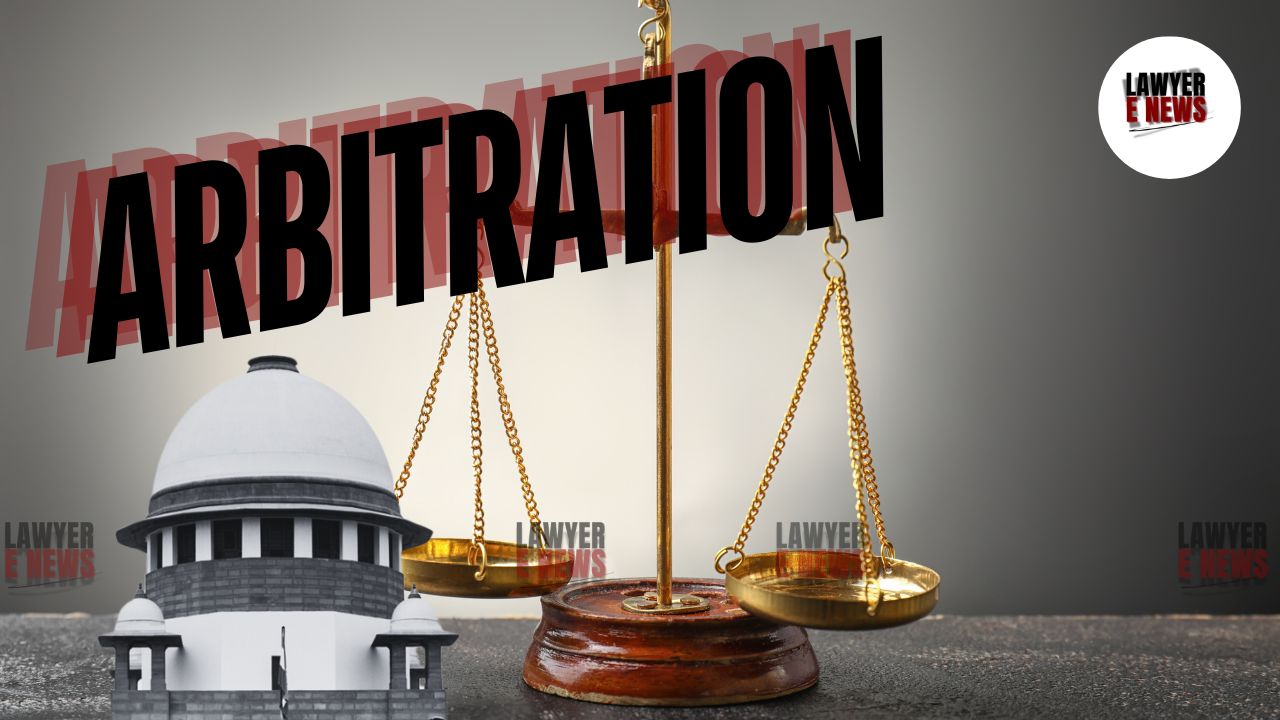-
by Admin
16 February 2026 1:47 PM



"State's Power of Eminent Domain Cannot Be Undermined by Private Settlements" – Supreme Court Rules in Favor of Delhi Agricultural Marketing Board
The Supreme Court has ruled that land acquired for public purposes through the exercise of the State’s power of eminent domain cannot be reversed through private agreements made by the beneficiaries of the acquisition. Striking down an arbitral award that upheld a dubious settlement between the Delhi Agricultural Marketing Board and a private landowner, the Court emphasized that allowing such agreements would constitute a fraud on the sovereign function of land acquisition.
Delivering the judgment in Delhi Agricultural Marketing Board v. Bhagwan Devi (Dead) Through LR, a bench comprising Justice Sanjiv Khanna and Justice Sanjay Kumar held that public land, once acquired for a statutory purpose, vests in the State and cannot be privately transferred without statutory approval. The Court declared that the agreement executed by the Board with Bhagwan Devi in 1988, allowing her to reclaim a portion of acquired land, was contrary to the fundamental policy of Indian law.
The Origins of a Legal Battle Over Publicly Acquired Land
The dispute arose when the Delhi Government acquired 33 acres of land in 1963 to establish a grain market in Narela, under the Land Acquisition Act, 1894. Compensation was awarded in 1986, and possession was handed over to the Delhi Agricultural Marketing Board. Among the acquired parcels was six bighas and ten biswas of land claimed by Bhagwan Devi, who challenged the acquisition in the Delhi High Court.
In an unexpected turn, the Board resolved the dispute privately, agreeing in 1988 to return half the land to Bhagwan Devi in exchange for her withdrawing the challenge and accepting compensation for the remaining half. The agreement was hastily executed, one day before the Chairman of the Board demitted office, raising questions about procedural irregularities.
This out-of-court settlement later led to arbitration proceedings initiated by Bhagwan Devi in 2004. The arbitrator ruled in her favor in 2007, directing the Board to honor the 1988 agreement and transfer the land back to her. The Board challenged this award before the Delhi High Court, which dismissed its objections under Section 34 of the Arbitration and Conciliation Act, 1996, and later upheld the award in appeal under Section 37.
Aggrieved by these rulings, the Board approached the Supreme Court, arguing that the agreement was illegal and in violation of land acquisition laws.
Supreme Court Rules That Public Land Cannot Be Reversed Through Private Deals
The Supreme Court found that the entire basis of the settlement was legally untenable. It ruled that once land is compulsorily acquired by the State and vested in the government, even the beneficiary of the acquisition—such as the Delhi Agricultural Marketing Board—has no authority to return or transfer the land without explicit legal sanction.
Justice Sanjay Kumar, writing for the bench, observed that the power of land acquisition cannot be undone through private negotiations. The Court stated:
"When the State acquires land using its sovereign power of eminent domain for a public purpose, the beneficiary of such acquisition cannot enter into private arrangements that undermine the sanctity of the acquisition. To permit such transactions would be nothing short of legalizing a fraud on the power of eminent domain."
The Court found that the agreement of 1988 was executed in undue haste, with stamp papers purchased just days before the Board meeting, and the outgoing Chairman signing the deal on his last day in office. The Court ruled that this smacked of procedural impropriety and raised serious doubts about the bona fides of the transaction.
Arbitral Award and High Court Decisions Set Aside as Contrary to Public Policy
The Supreme Court found that the arbitral award of 2007, as well as the Delhi High Court’s decisions upholding it, were in violation of the fundamental principles of public law. Under Section 34(2)(b) of the Arbitration Act, an award that is contrary to the public policy of India can be set aside. The Court clarified that an award that legitimizes an unlawful transfer of public land is in direct conflict with the fundamental policy of Indian law and cannot be upheld.
The Court also noted that Section 24 of the Delhi Agricultural Produce Marketing (Regulation) Act, 1998, prohibits the transfer of acquired land without the previous sanction of the Lieutenant Governor. Since no such approval was obtained, the entire agreement was null and void.
The Supreme Court ruled that the lower courts had failed to recognize the illegality of the transaction and had erroneously upheld the arbitral award. It set aside:
The Arbitral Award dated July 10, 2007, which directed the Board to execute a conveyance deed in favor of Bhagwan Devi.
The Delhi High Court’s order dated July 1, 2013, which dismissed the Board’s challenge under Section 34 of the Arbitration Act.
The Division Bench’s judgment dated September 27, 2013, which upheld the award under Section 37.
The Supreme Court declared that public land remains protected from unauthorized private settlements and cannot be bargained away through informal agreements.
A Landmark Judgment That Reinforces the Sanctity of Public Land Acquisition
The Supreme Court’s ruling in Delhi Agricultural Marketing Board v. Bhagwan Devi is a significant precedent in protecting public land from fraudulent transactions and unauthorized private settlements. The judgment sends a clear message that beneficiaries of land acquisition cannot subvert the process through backdoor arrangements. By striking down an arbitral award that sought to undo a state acquisition, the Supreme Court has reinforced that public land remains a trust vested in the government and cannot be casually bartered away.
Date of decision: 20/03/2025
